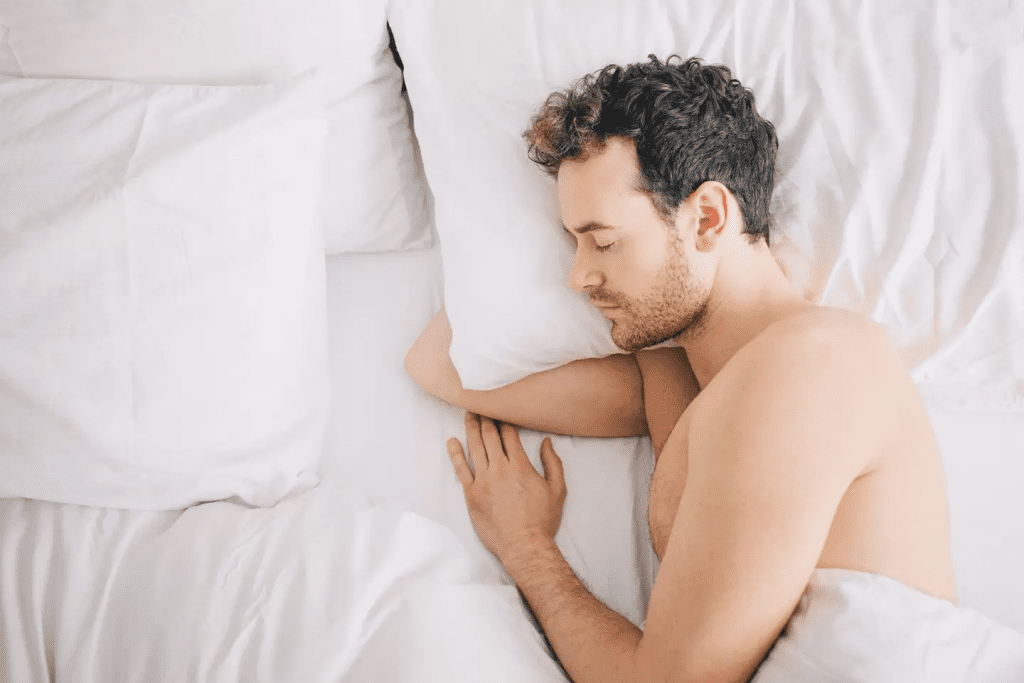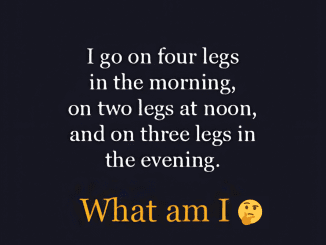We spend about a third of our lives asleep, but how often do you think about the position you’re sleeping in? Whether you sleep on your back, side, or stomach, the position you choose can have a surprising impact on your health. In fact, sleeping on different sides of your body can lead to varied effects, ranging from improving digestion to influencing heart health. Let’s explore how the side you sleep on can make all the difference.
Why Sleep Position Matters

When it comes to sleep, most of us focus on how many hours we get each night. But did you know that sleep quality is just as important, if not more so? James Leinhardt, a sleep expert and TED Talk speaker, emphasizes that focusing on the position in which you sleep can significantly enhance the quality of your rest. While many believe that eight hours of sleep is the magic number, Leinhardt suggests that the quality of your sleep holds more importance than the quantity.
Your sleep position directly affects various aspects of your body, including your spine alignment, digestion, and even how well you breathe during the night. Some positions are better for you than others, and knowing which side to sleep on can help address specific health issues or improve your overall well-being.
Is Sleeping on Your Side Really the Best?
When it comes to choosing the best sleep position, most people default to whatever feels most comfortable. For many, that’s sleeping on their side. But is it the best choice? According to Leinhardt, side sleeping is indeed one of the top two sleeping positions he recommends.
When you sleep on your side, your spine is more naturally aligned, which reduces pressure on your back and neck. This position helps minimize the risk of waking up with aches and pains. Leinhardt advises keeping your ears, shoulders, hips, knees, and ankles stacked on top of one another to maintain optimal alignment. For added support, consider placing a pillow between your knees.
Which Side Should You Sleep On?
So, you’ve decided that side sleeping is best for you. But here’s where it gets tricky: does it matter which side you choose—left or right? It turns out it does, and the side you pick can affect various aspects of your health.
Sleeping on Your Left Side: What Are the Benefits?
For those dealing with certain health conditions, sleeping on the left side offers a variety of benefits. Let’s break down why the left side could be your new favorite sleep position.
- Improved Digestion: One of the most significant benefits of sleeping on the left side is its positive effect on digestion. The position of the stomach and pancreas in this posture encourages better digestion by allowing gravity to help food move more easily through the intestines.
- Relief from Acid Reflux: If you suffer from gastroesophageal reflux disease (GERD) or frequent heartburn, sleeping on your left side can help. This position prevents stomach acid from flowing back up into the esophagus, reducing the risk of nighttime heartburn.
- Better Circulation for Pregnant Women: Pregnant women are often advised to sleep on their left side because it promotes better blood flow to the heart and improves circulation for both mother and baby. This position also helps relieve pressure on the back and prevents the uterus from compressing major blood vessels.
Sleeping on Your Right Side: Pros and Cons

While the left side seems to offer more health perks, there are certain instances where sleeping on the right side might be more beneficial.
- Heart Health: For individuals with certain heart conditions, sleeping on the right side may feel more comfortable. A study revealed that when people sleep on their left side, the heart shifts in the chest cavity due to gravity, potentially affecting its electrical activity. Sleeping on the right side avoids this shift and may help those with heart issues rest easier.
- Blood Pressure Management: High blood pressure sufferers might benefit from sleeping on the right side. This position helps reduce pressure on the heart, making it easier for the cardiovascular system to function efficiently.
The Science Behind Sleep Positions

While sleeping on your side offers plenty of benefits, it’s essential to understand how sleep positions affect your body. Here’s a deeper look at the science behind it:
- Spine Alignment: Sleeping on your side can help maintain proper spinal alignment. When your spine is neutral, there’s less pressure on your joints and muscles, reducing the likelihood of waking up with back pain.
- Pressure Relief: Side sleeping distributes your body weight more evenly, relieving pressure on areas like your shoulders, hips, and knees. This can be particularly beneficial for people with arthritis or joint pain.
- Breathing and Snoring: Sleeping on your side can help keep your airways open, reducing the likelihood of snoring and improving breathing for those with sleep apnea. When you lie on your back, gravity can cause the tongue and soft tissues to fall back into the throat, obstructing airflow. Side sleeping helps prevent this.
Alternating Between Sides: Is It Necessary?
For most people, alternating between the left and right side while sleeping can offer a balance of benefits. James Leinhardt recommends switching sides to reduce the risk of putting too much pressure on one side of the body. For instance, alternating between the left and right sides can help prevent stiffness in your hips and shoulders while still allowing your body to enjoy the perks of side sleeping.
However, if you suffer from conditions like acid reflux or high blood pressure, sticking to the side that best suits your condition may be more beneficial. Pregnant women, for example, should prioritize sleeping on their left side to improve circulation and support fetal development.
Other Sleeping Positions: Pros and Cons
@levitex Do you alternate? 🫡
♬ original sound – Levitex
While side sleeping often comes out on top, other positions still have their own benefits and drawbacks.
Back Sleeping
Sleeping on your back can be great for maintaining a neutral spine, but it’s not for everyone. While it helps distribute your weight evenly, it may worsen snoring or sleep apnea for some people. If you sleep on your back, consider placing a pillow under your knees to support your lower back.
Stomach Sleeping
Stomach sleeping is generally not recommended because it can put excess strain on your neck and spine. Over time, this can lead to pain and stiffness. If you prefer this position, try to use a thin pillow or no pillow at all to reduce pressure on your neck.
Conclusion: Finding the Best Sleep Position for You
In the end, the best sleep position comes down to personal preference and any specific health conditions you may have. Sleeping on your side, particularly the left side, offers significant benefits for digestion, circulation, and overall sleep quality. However, alternating between sides can help prevent discomfort and stiffness while you rest.
If you’re unsure which position is right for you, pay attention to how you feel when you wake up. Do you feel well-rested, or are you waking up with aches and pains? Small adjustments to your sleep position, like using a pillow between your knees or switching sides, can make a big difference in how refreshed you feel each morning.
So, which side will you sleep on tonight? Try experimenting with both to see which leaves you feeling more rejuvenated and pain-free. After all, a good night’s sleep is one of the best investments you can make in your overall health and well-being.


